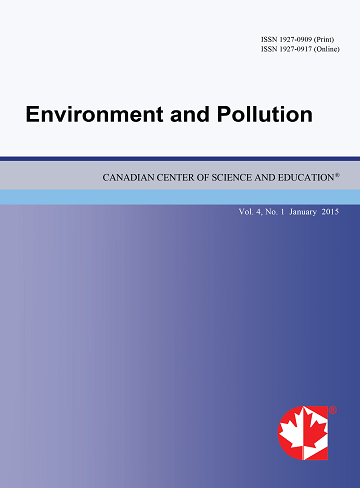Africa’s Urban Waste Management and Sanitation Challenges: Are Transfer Stations the Solution?
- Bob Offei Manteaw
- Johannes Boachie
Abstract
Africa’s urbanization processes are seen as both a challenge and an opportunity for sustainable development. While these processes unfold differently in diverse countries across the continent, it has become increasingly apparent that surge urbanization, population growth and the lack of effective planning for an efficient waste management system have brought in its wake other challenges that have significant implications for public health and sustainable development. Thus, much as urbanization has the potential to drive Africa’s growth and sustainable development agenda, current happenings in most of Africa’s cities, in particular, also signal the negative impact of rapid and unplanned urbanization on sustainable development processes. Waste and sanitation management have become an enduring urban challenge across Africa. They come with significant cost to people and governments and as the search for lasting solutions continue, Waste Transfer Stations have emerged as an efficient management technology which has been embraced and deployed in some countries. While it has received praises in some quarters as an innovative technology, there is concern that such praises have muted critical issues of pollution, odor nuisance, cultural incompatibility and public health challenges, which, for the most part, are unrecognized or underestimated. The question then becomes: are Waste Transfer Stations the solution to Africa’s urban waste and sanitation challenges?
- Full Text:
 PDF
PDF
- DOI:10.5539/ep.v9n1p1
Journal Metrics
Index
- Academic Journals Database
- Berkeley Library
- CAB Abstracts
- CAS (American Chemical Society)
- CNKI Scholar
- COPAC
- CrossRef
- DTU Library
- Elektronische Zeitschriftenbibliothek (EZB)
- EuroPub Database
- Excellence in Research for Australia (ERA)
- Genamics JournalSeek
- Google Scholar
- Harvard Library
- Infotrieve
- Jisc Library Hub Discover
- JournalGuide
- JournalTOCs
- LOCKSS
- Max Planck Institutes
- Mir@bel
- PKP Open Archives Harvester
- Pollution Abstracts
- Publons
- Pubmed journal list
- ROAD
- Scilit
- SHERPA/RoMEO
- Standard Periodical Directory
- Stanford Libraries
- UCR Library
- Ulrich's
- UniCat
- Universe Digital Library
- UoS Library
- WorldCat
- Zeitschriften Daten Bank (ZDB)
Contact
- Albert JohnEditorial Assistant
- ep@ccsenet.org
